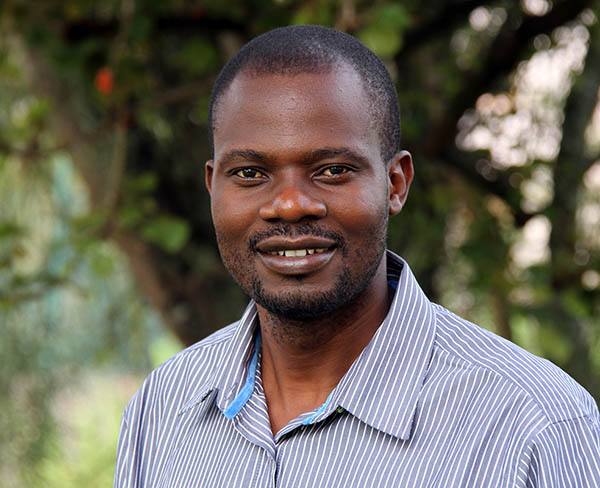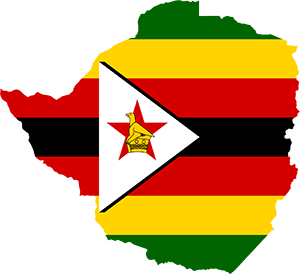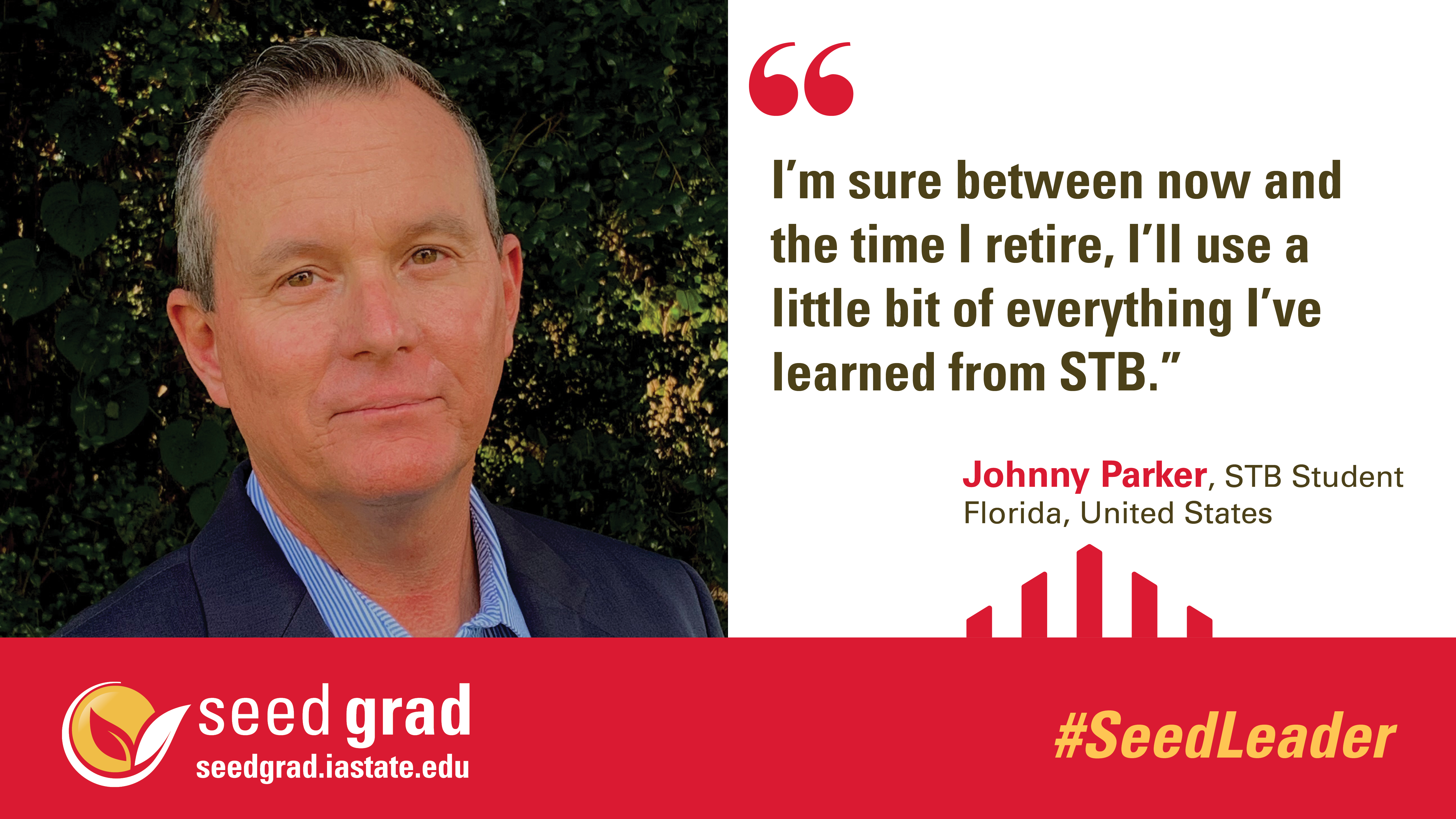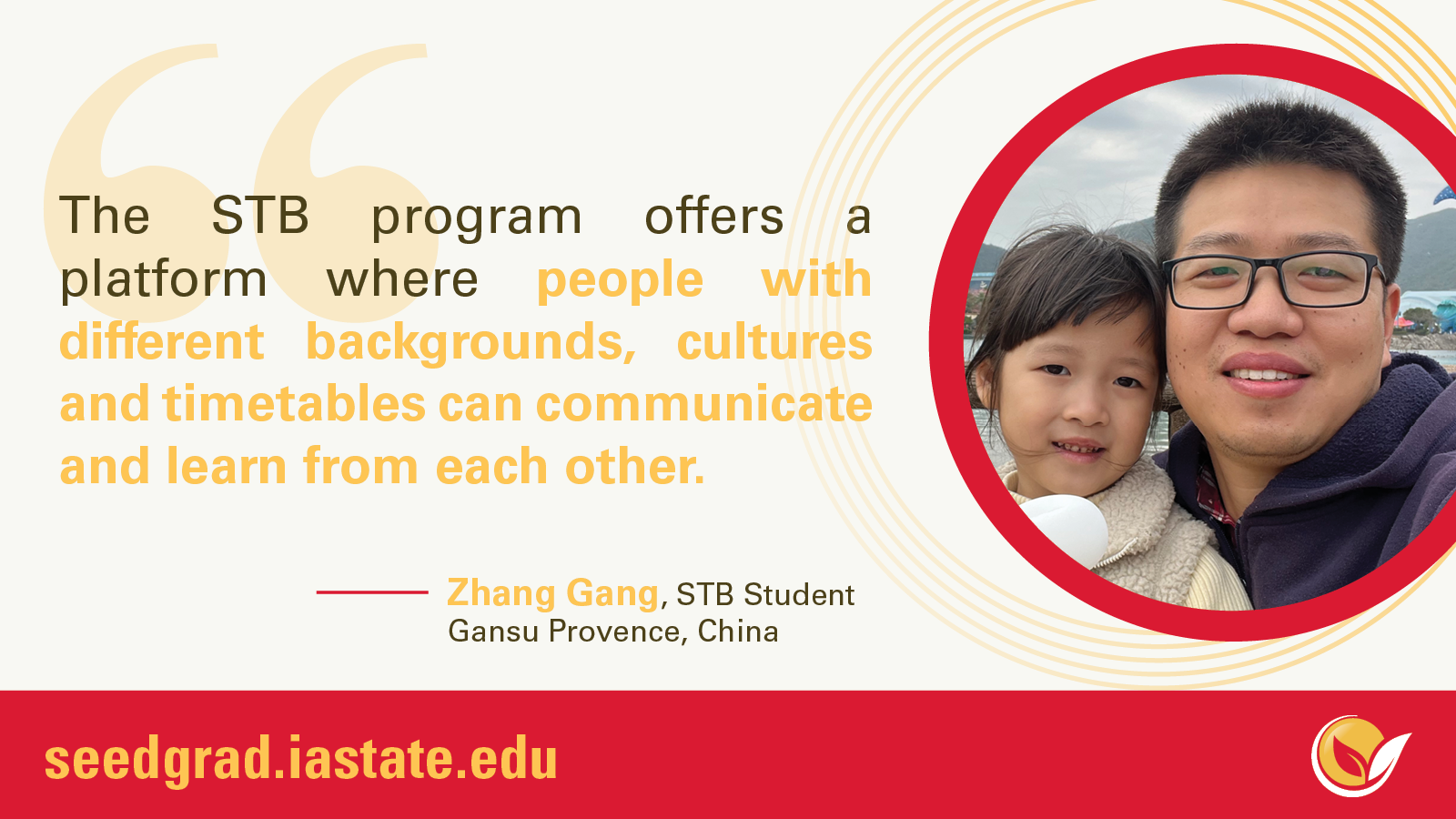 Enock Maereka
Enock Maereka
STB 2020 Graduate
Norton, Zimbabwe, Africa
Independent Consultant in Agriculture
Our rapidly changing world demands that online learning programs work to increase globalization in the classroom. This is especially true for online agriculture programs like the Online Graduate Program in Seed Technology and Business (STB). The program delivers guidance to professionals in developing countries by providing educational resources on agricultural advancements. The international students who have participated in the program are a wonderful addition to the online classroom environment because they offer a unique perspective on global agriculture that our domestic students might not otherwise be exposed. “One of the biggest assets for all the students in the STB program is learning from each other.  The diversity of crops, seed companies represented, and students are the STB program’s biggest strengths,” says Lori Youngberg STB graduate program coordinator.
The diversity of crops, seed companies represented, and students are the STB program’s biggest strengths,” says Lori Youngberg STB graduate program coordinator.
Enock Maereka understands how valuable international experience can be. From Zimbabwe, one of Enock’s major objectives as a professional in the seed industry in Africa is to ensure farmers benefit from modern genetics. Working with legumes specifically, he has noticed there is a tendency to keep varieties for decades. Enock believes that the education of African farmers is a work in progress, but is something he continues to work on.
One of the main goals of creating the online STB program was to ensure that students from all over the world could participate. Enock is a wonderful example of a student who is using the knowledge he gained in the classroom to help move his local agricultural industry forward.
Enock, what is your current position?
Independent Consultant in Agriculture (I recently left a position as a Seed Business Development Specialist in the CGIAR system)
Why did you choose the field of agriculture/agronomy?
I had always wanted to be an architect during my high school years, but just before I entered university, one of my brothers convinced me to take up studies in agriculture, especially agronomy. Growing up in rural Zimbabwe where agriculture is the main economic activity, I had some basic agriculture experiences from childhood. I was curious to understand why we labored a lot on the fields, yet our circumstances never really changed. The more I learned about agricultural production systems, the more curious I became. I then realized that seed can be a key entry point to fighting global challenges; food and nutrition insecurity, poverty, and climate change.
Tell us about your experience of being an online learner in the STB program.
It was like a roller-coaster ride; intimidating from the outlook, yet full of thrills. When I got accepted into the program and successfully enrolled, I started asking what I got myself into. Then I remembered advice from Lori Youngberg, the Program Coordinator, “You will take one course in the first semester just to get your feet wet.” Certainly, I had to adapt very quickly to the online delivery of courses, especially the observance of deadlines. I had to be an ardent fan of the internet to check my calendar frequently and upload content on time. Working in Africa, and especially with frequent travel to some remote locations without access to reliable electricity and the internet meant having to catch up a little later sometimes. Fortunately, the faculty were very understanding.
Did the STB program help you professionally?
Being online, the STB program sharpened my independent thinking and reduced tendencies toward groupthink. The program helped me express my thoughts. Also keeping calendars and deadlines is the best therapy for getting organized in one’s professional life. Embracing diversity was one key element in the program; classmates come from diverse backgrounds.
Has the information you learned in the program made any lasting impacts on your contributions to seed systems in Africa?
I certainly learned a lot about how we can modernize seed systems in Africa, especially elements of variety testing and variety replacement in the legumes sub-sector. I have observed that there is a tendency to keep legume varieties in circulation for decades, despite continuous research and official gazetting of new ones – one of my major objectives is to ensure farmers benefit from modern genetics. My new knowledge and skills helped to enhance capacities of researchers in national research programs, emerging seed businesses, and farmers to understand that the building of sustainable demand-driven seed legume seed systems requires strategic links and leveraging on modern information systems. Enock believes that the education of African farmers has, for a while been a work in progress, but it is something he cannot give up on.
What has been the greatest part of finishing the STB course work?
First, it is the excitement that it is over, not with resentment, but with the joy of achievement! Second, when summing up all skills and knowledge acquired throughout the program, I realize how relevant I am to contribute to overcoming current and future global challenges.
Would you recommend this program to other students studying internationally? Why?
I strongly recommend the STB course for international students. The course provides a great opportunity to access world-class education while keeping your job wherever you might be in the world. Also, the course materials are quite current, giving participants an excellent opportunity to catch up with the fast-changing world of business and science.
Enock is a wonderful example of an international student who is using the knowledge he gained in the classroom to help move his local agricultural industry forward. We are always looking to connect and grow the program with more international students. Are you interested in being a #seedleader?
Become a #seedleader today!


